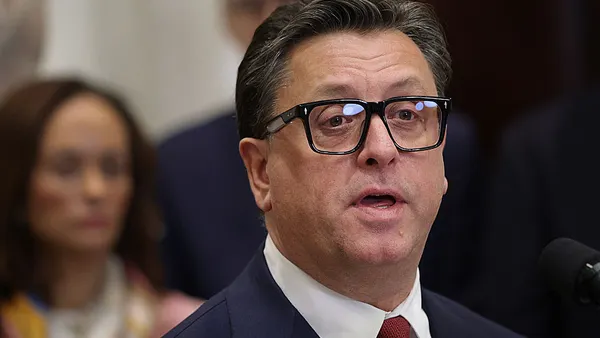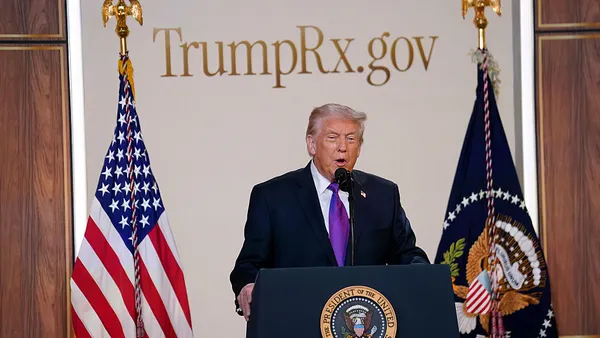Emma Walmsley, the first woman to lead a big pharma company as CEO, will step down from that post Dec. 31, handing the reins of one of Britain’s premier drugmakers to commercial chief Luke Miels.
In a statement Monday, GSK said Walmsley, who has been running GSK since 2017, will depart as part of a succession plan. Miels’ selection was the outcome of a “rigorous process” conducted over the last few months and that included consideration of “internal and external candidates.” He’ll start serving as GSK’s full-time CEO on Jan. 1.
The CEO change ends a nine-year run for Walmsley atop GSK. During that time, Walmsley steered the big drugmaker through a turbulent period, during which it spun out its consumer health business to focus on innovative drugs while facing persistent investor pressure to boost its productivity and growth prospects.
GSK also deepened its investment in oncology, expanded its HIV drug portfolio and brought to market the first vaccine for respiratory syncytial virus.
Yet GSK missed an opportunity during the COVID-19 pandemic, when it decided against developing its own vaccine and partnerships with Sanofi and CureVac hit setbacks and delays. And ongoing pressure to its vaccine and HIV businesses have threatened future prospects. GSK’s share price is also little changed, particularly compared to the growth in value over that time of U.K. pharmaceutical peer AstraZeneca.
Still, revenue for GSK’s pharmaceuticals and vaccines businesses climbed from around 23 billion pounds in 2017 to 31 billion in 2024. Company executives are forecasting 40 billion pounds in sales in 2031, driven by as many as 15 coming drug launches.
In a statement, GSK board chair Jonathan Symonds praised Walmsley’s “outstanding leadership in delivering a strategic transformation of GSK.”
“GSK today is necessarily very different to the company she was appointed to nine years ago and has a bright and ambitious future,” he said. “The company is performing to a new, more competitive standard, with performance anchored in a stronger portfolio balanced across specialty medicines and vaccines.”
“2026 is a pivotal year for GSK to define its path for the decade ahead, and I believe the right moment for new leadership,” Walmsley added.
Miels joined GSK in 2017 after stints at AstraZeneca, Roche and Sanofi, in positions in Europe, Asia and the U.S. He will be paid a base salary of nearly 1.4 million pounds and qualify for bonuses of up to 300%, in addition to other incentives and benefits, according to GSK’s statement.
Walmsley, meanwhile, will also step down from GSK’s board effective Dec. 31, but will remain with the company through Sept. 30, 2026 to support Miels “given the potential impact to GSK’s operating environment arising from geopolitics and new technologies.”















